When Ronald Reagan was elected president of the United States, he was the most ideological anti-Communist leader America has had since the Bolsheviks came to power in Moscow in November 1917.
Ironically, Reagan, who denounced the then USSR as the 'evil empire', was won over by the charm of the Soviet Union's final leader, Mikhail Sergeyevich Gorbachev, who passed into the ages at a Moscow hospital on Tuesday, August 31, 2022.
The implacable foe of the Communists in the Kremlin and the apparatchik who was weaned on Marx, Engels and Lenin all his life became unlikely allies, working together to dismantle the threat of a nuclear confrontation and the dismantling of atomic arsenals.
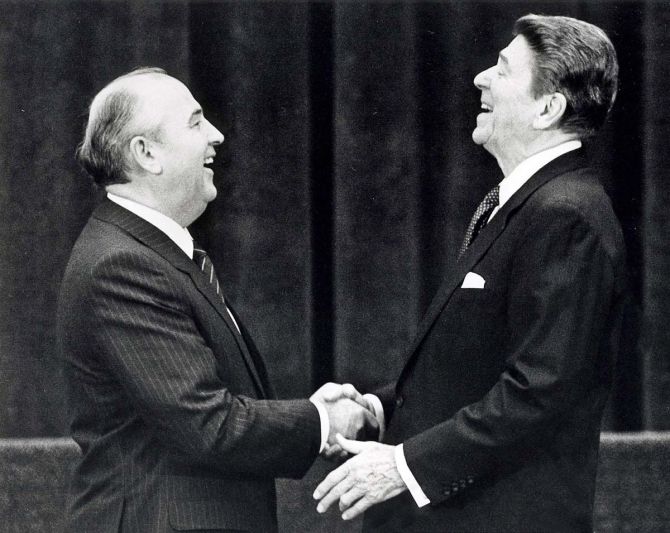
IMAGE: Then US president Ronald Reagan greets Mikhail Gorbachev, then general secretary of the Communist party of the Soviet Union, in Geneva at their first meeting, November 19, 1985.
The two leaders met for the first time to hold talks on international diplomatic relations and the arms race. Photograph: Denis Paquin/Files/Reuters
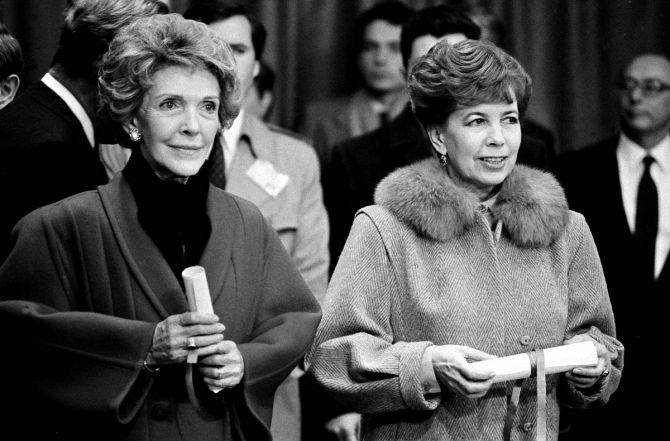
IMAGE: Nancy Reagan, left, and Raisa Gorbachev at the unveiling of a new museum at the headquarters of the International Committee of the Red Cross in Geneva, November 20, 1985. Photograph: Nick Didlick/File Photo/Reuters
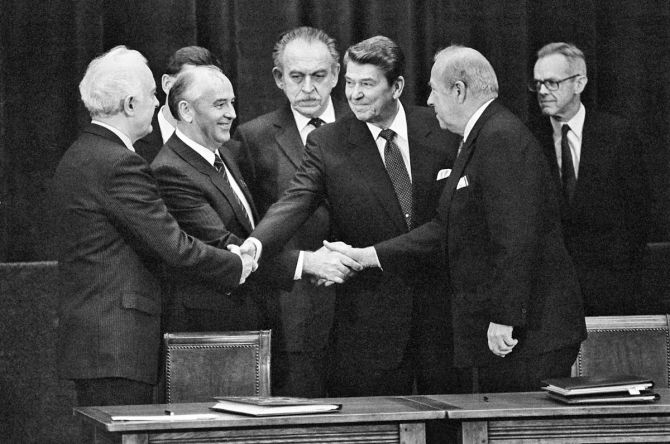
IMAGE: A four-way handshake between left to right, then Soviet foreign minister Eduard Shevardnadze, Gorbachev, Reagan and then US secretary of state George Schultz in Geneva, November 21, 1985. Photograph: Denis Paquin/File Photo /Reuters
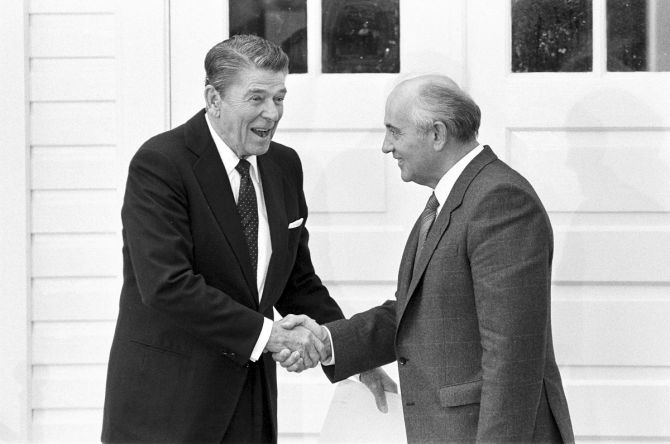
IMAGE: Reagan and Gorbachev at their mini-summit in Reykjavik, Iceland, October 12, 1986. Photograph: Denis Paquin/File Photo/Reuters
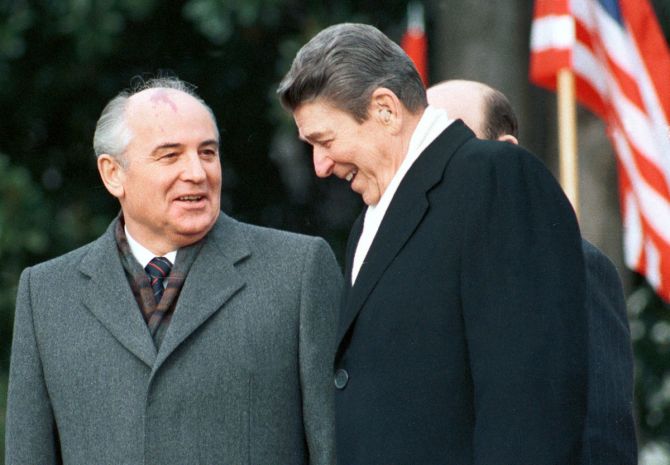
IMAGE: Reagan and Gorbachev at the White House, December 8, 1987. Photograph: Gary Hershorn/Files/Reuters
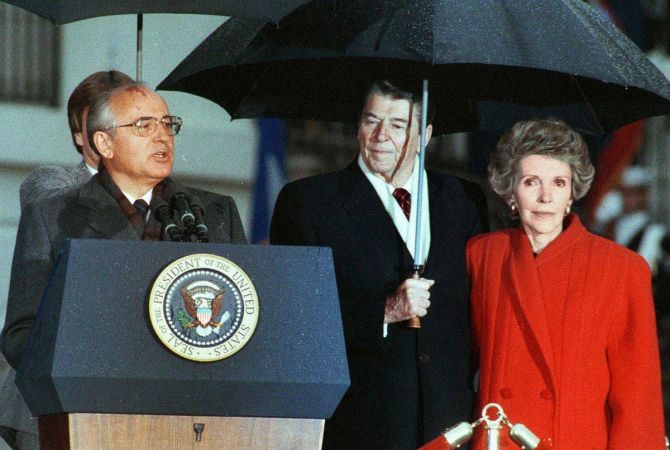
IMAGE: Nancy and Ronald Reagan listen to Gorbachev speak during the Soviet leader's departure ceremony at the White House, December 10, 1987. Photograph: Gary Hershorn/Files/GMH/SV/Reuters
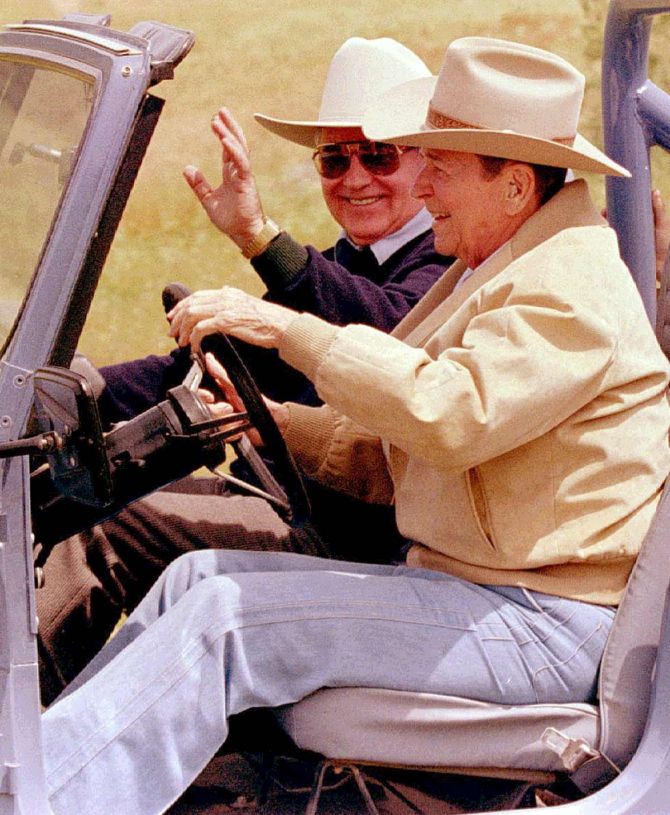
IMAGE: Reagan takes Gorbachev for a drive to tour the Reagan ranch in the Santa Ynez mountains near Santa Barbara. Photograph: LD/Reuters
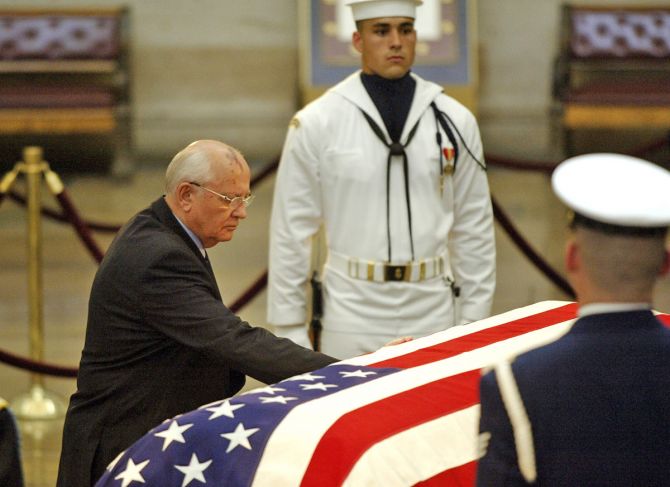
IMAGE: Gorbachev reaches out to touch the casket containing Ronald Reagan as the former president lies in state at the US Capitol rotunda, June 10, 2004.
Fred Ryan, publisher of the Washington Post and president of the Ronald Reagan Foundation, recalled on Wednesday, August 31, that Nancy Reagan was deeply touched by Gorbachev's gesture of flying to Washington, DC to pay homage to her husband at his funeral. Photograph: Mike Segar/Reuters
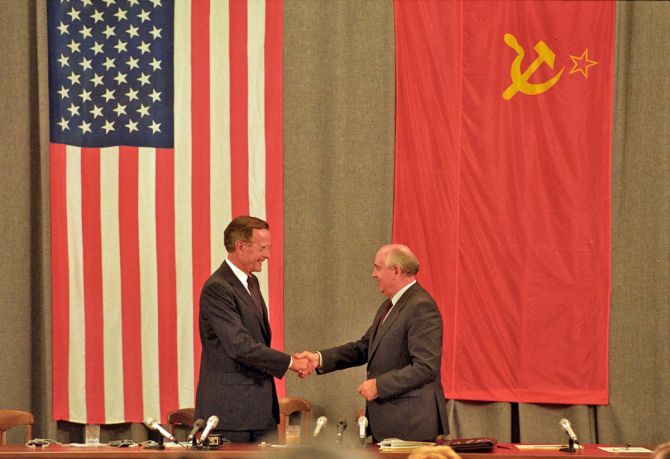
IMAGE: Then US president George H W Bush and Gorbachev shake hands in front of US and Soviet flags in Moscow, July 31, 1991. Photograph: Rick Wilking/Files/Reuters
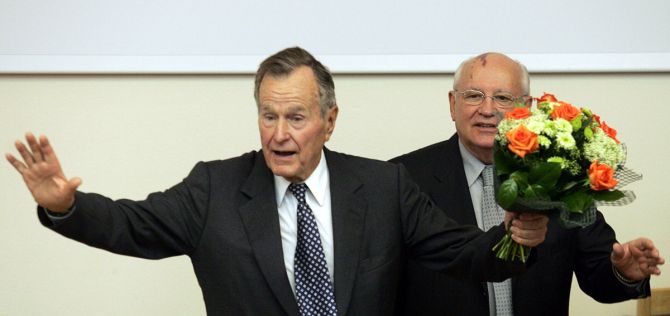
IMAGE: Gorbachev with George H W Bush at their meeting at the Moscow State Institute of International Relations, May 23, 2005. Photograph: Sergei Karpukhin/CVI/AA/Reuters
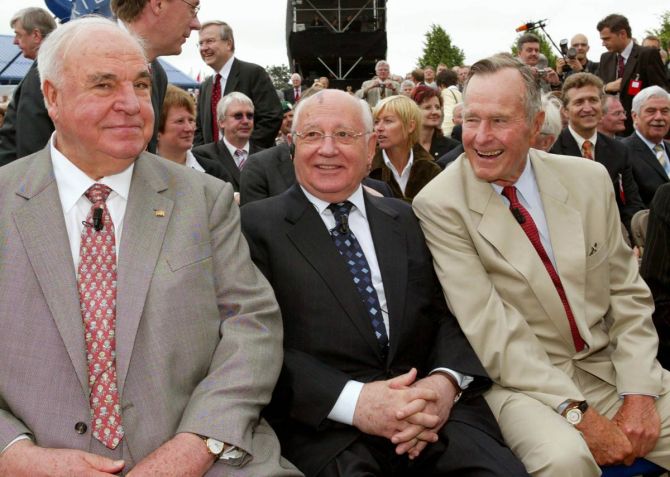
IMAGE: Former German chancellor Helmut Kohl, Gorbachev and Bush take their seats for the Point Alpha Award ceremony at the demarcation line between the former East and West Germany near the village of Geisa, east Germany June 17, 2005.
Bush received the inaugural 'Point Alpha Award', that honours outstanding contributions to German and European unity along with Kohl and Gorbachev on the anniversary of a 1953 workers uprising against Communist authorities in East Germany. Photograph: Fabrizio Bensch/Reuters
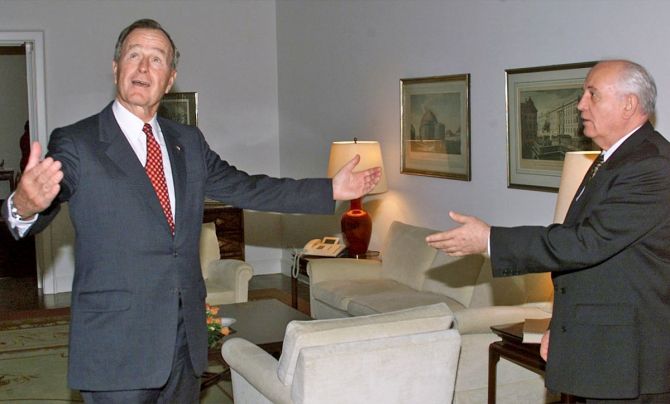
IMAGE: Bush gestures ahead of a meeting with Gorbachev in Berlin, November 9, 1999.
Bush marked the 10th anniversary celebrations of the collapse of the Berlin Wall by saying it was the chemistry of world leaders that helped to bring east and west together a decade earlier. Photograph: WR/ME/Reuters
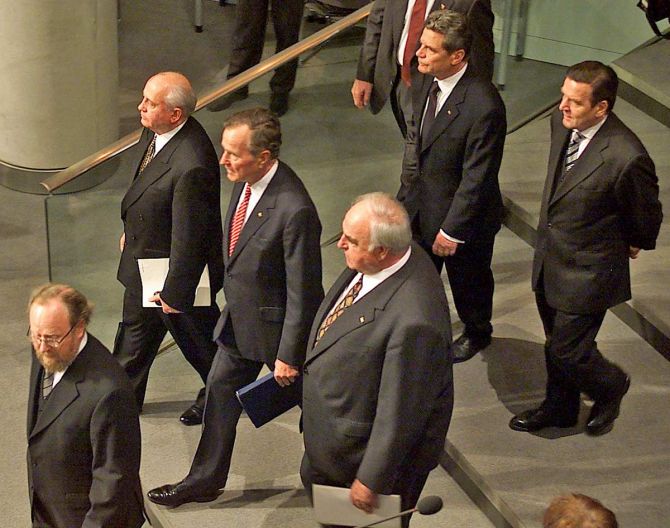
IMAGE: Gorbachev, Bush, left to right, German parliamentary president Wolfgang Thierse, Joachim Gauck, Helmut Kohl and then German chancellor Gerhard Schroeder arrive for a parliamentary session in the Reichstag building to remember the opening of the Berlin Wall ten years earlier, November 9, 1999. Photograph: MUR/CLH/Reuters
Photographs curated by Manisha Kotian/Rediff.com
Feature Presentation: Ashish Narsale/Rediff.com













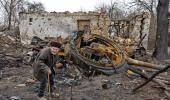









 © 2025
© 2025